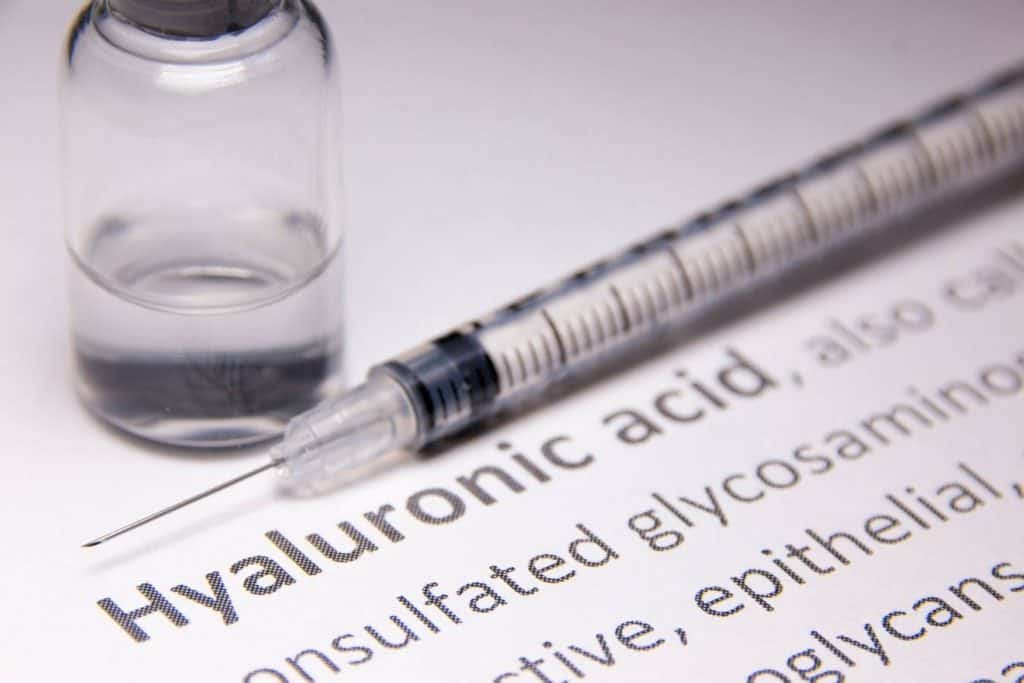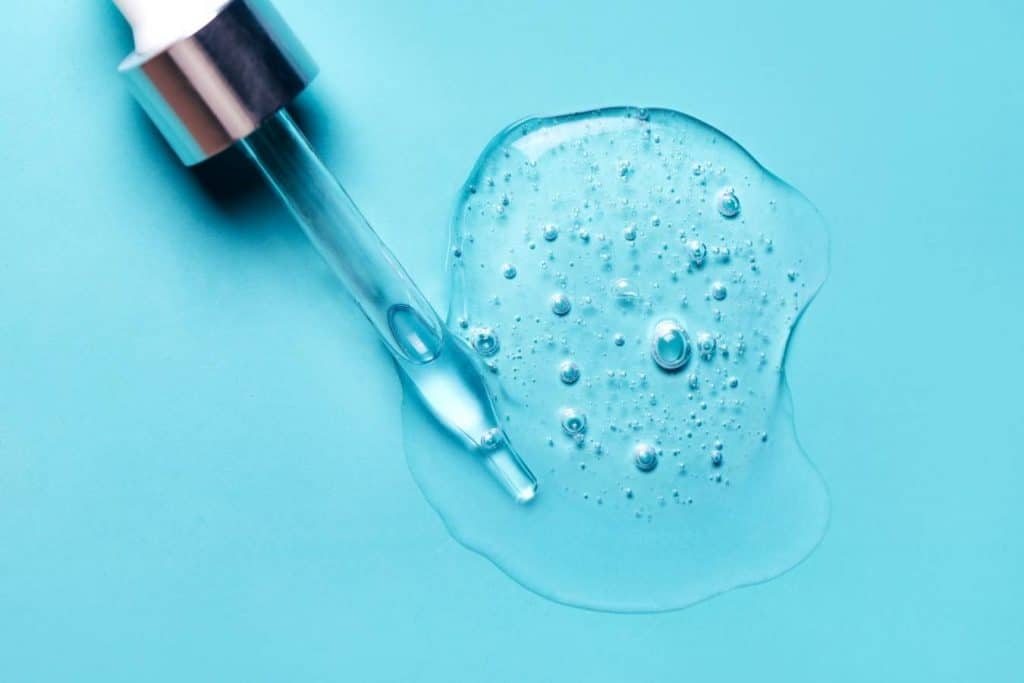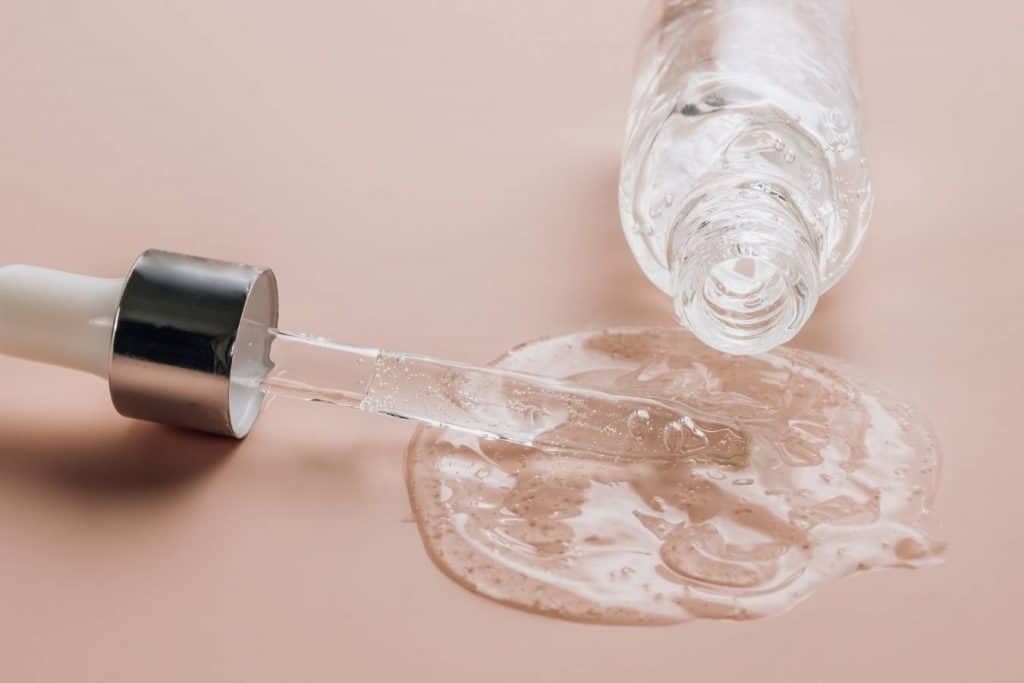Hyaluronic acid is widely used in beauty products but is hyaluronic acid good for eyelashes? Here is a quick guide to what you need to know.

Hyaluronic acid is good for eyelashes. It has outstanding moisturizing properties. Hyaluronic acid is therefore particularly valuable if you have dry hair. Even if you don’t, hyaluronic acid can still be useful. Keeping hair well moisturized makes it easier to groom and less prone to damage.
What Is Hyaluronic Acid?
Despite the name, hyaluronic acid is actually a type of sugar molecule known as glycosaminoglycans or mucopolysaccharides.
It is produced naturally by the body although the level of production drops as the body ages.
Biologically, the main function of hyaluronic acid is to bind water to collagen. Hyaluronic acid can bind over one thousand times its own weight in moisture.
It is also a humectant, so it can draw in moisture from the atmosphere to boost the body’s own resources.
Benefits of Hyaluronic Acid
In the context of beauty, hyaluronic acid is best known as a super-moisturizer. It can, however, deliver a wide range of benefits:
- Keeps skin and hair supple
- Can help wounds to heal faster
- Lubricates bones and joints
- May help bone health
- May help relieve the symptoms of acid reflux
- May soothe the symptoms of painful bladder syndrome
- Helps eye health
Why Hyaluronic Acid Is Good For Eyelashes

Here are the three main reasons why hyaluronic acid is good for eyelashes.
1. Adds volume
Hyaluronic acid draws water into the hair. This makes your hair plumper and hence gives the impression of longer and fuller lashes.
Even if your hair naturally has plenty of moisture, it’s very easy for this to be lost.
For example, heating, air conditioning, and sunlight can all dry your hair (and skin).
2. Makes them easier to groom
Well-moisturized eyelashes still need to be treated gently. They are, however, much less delicate to the touch than dry eyelashes.
This makes them much easier to comb. It also means that you can apply and remove makeup with confidence.
3. Help to prevent them from snapping
On a similar note, the drier your eyelash hair is, the more brittle it becomes. The more brittle it becomes, the easier it is to snap.
If you frequently lose eyelashes to unnecessary breakage, then your eyelashes can become noticeably thinner.
Can Hyaluronic Acid Help Grow Eyelashes?
Hyaluronic acid cannot help grow eyelashes. It can only make eyelashes appear longer. Hyaluronic acid can, however, help to stop eyelashes from being lost to preventable damage.
By adding moisture, it helps to make eyelashes more flexible. This makes them more robust and hence reduces the likelihood that they will break.
How To Use Hyaluronic Acid For Eyelashes

Although hyaluronic acid is produced naturally, it is possible to have an allergic reaction to it.
You should therefore still do a patch test before using a product externally for the first time.
Be very careful when applying any product near the eyes.
If any product gets in your eyes, rinse it out immediately using clean, fresh water. If you experience a severe reaction, get medical assistance.
Mascara with hyaluronic acid
Using mascara with hyaluronic acid is a simple and convenient way of including hyaluronic acid in your beauty routine.
The hyaluronic acid will add internal moisture while the mascara will coat the eyelash in the usual way.
Eyelash serum
High-quality eyelash serums almost always contain hyaluronic acid for moisture.
The other ingredients will determine whether the serum will promote hair growth or just condition your existing hair.
If you specifically want a product to help grow eyelashes, look for ingredients such as peptides, prostaglandins, and Vitamin E.
Eating hyaluronic-acid-rich foods
Hyaluronic-acid-rich foods include bone broth, oranges, tofu, kale, almonds, edamame, and sweet potatoes.
You can also take hyaluronic acid supplements but it is advisable to consult a medical professional first.
Risks And Warnings Of Using Hyaluronic Acid
People with scleroderma should avoid using hyaluronic acid externally.
People with cancer or with a history of cancer should avoid using hyaluronic acid supplements. Pregnant and nursing mothers are advised to avoid hyaluronic acid supplements for the time being.
This is because there is insufficient evidence about their safety in this situation.
Hyaluronic acid injections may produce unpleasant side effects. This may, however, be more to do with the injection than with the hyaluronic acid itself.
Mainstream hyaluronic acid products generally use hyaluronic acid of animal origins.
If you want vegetarian-/vegan-friendly hyaluronic acid products, you generally need to search for them specifically. Then double-check the label to be sure.
